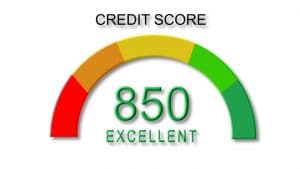Insights for First-Time Homebuyers: What You Should Know About Your First Mortgage
Your first mortgage is one of the most important financial commitments you will make in your life. Depending on your first mortgage, you could have a lifetime of good credit, or end up in a deep financial hole that will take years to dig yourself out of. Know what you need to know for your first mortgage along with top tips for your first mortgage.
Your Budget
How much can you expect to pay per month for your mortgage? You can use a mortgage payment calculator to figure out how much your payments will be, assuming amortization period, interest rate, and the size of the mortgage.

If your interest rates go up for whatever reason, your payments will increase, too. Figure out what you will have to pay if the terms of your loan change.
Typical rate: 4%
- Mortgage Amount: $200,000
- Interest Rate: 6%
- Amortization: 30 Years
- Monthly Payment: $951.04
If it goes up to 6%, can you still afford the payments?
- Mortgage Amount: $200,000
- Interest Rate: 6%
- Amortization: 30 Years
- Monthly Payment: $1,189.65
The difference in this example is over $200 extra a month. The bigger the mortgage, the bigger the difference will be. If this will prevent you from paying your mortgage, you’ll have to think twice when buying a house!
If you can, put 20% or more down. This not only reduces the mortgage you have to take, but it also prevents you from having to pay for private mortgage insurance (PMI). This insurance costs thousands of dollars in the long run.
Learn more about budgeting for your first mortgage and what you need to know for your first mortgage here!
Finding a Broker
Shop around for mortgage brokers. Depending on your credit (fair, good, excellent), you will have fewer or greater options for mortgage lenders.
If your credit is above 800, you will get the best possible interest rates. Know what are the benefits of 850 credit score?

Mortgage brokers will get you a mortgage but no mortgage will lock you in for the entire amortization period. You will generally get a mortgage term of 1, 3, 5, or even 10 years. It’s much easier to refinance after the term ends, so if you think that you’re going to sell relatively soon (note: the average homeowner lives in one house for seven years), then get a shorter term.
The aim is not to minimize your payments, but to minimize your interest rate. Go with the lender that gives you the best interest rate for your mortgage amount.
Mortgage lenders offer fixed rate and adjustable rate mortgages. Fixed rate stays constant for the length of the term (usually 5 years). Adjustable rate could change at any time.
If you value stability and want to keep your payments the same for the length of the term, choose a fixed rate mortgage. You will pay a slight premium for the stability.
Documents You Need
-
- Bank statements, confirming your cash balances.
- Proof of income and employment.
- An employment letter and pay stubs should suffice.
- If you’re self employed, you’ll likely need copies of your 1040 tax form.
- Credit report. Your lender will be able to pull this themselves by doing a hard inquiry during the application process.
Qualifying For A Mortgage
In general, the higher your credit score, the more likely you are to qualify for a mortgage but what you need to know for your first mortgage. Again it comes down to top tips for your first mortgage.
However, you also need to have the ability to pay for the mortgage. If you’re taking out a $1,000,000 mortgage but you only make $50,000/year, no matter how good your credit is: you probably will not qualify. Lenders look at your income, your current cash balances, and your debt-to-equity ratio to figure out how much you can afford.

You may qualify for one type of mortgage, but not for another. In order to get a mortgage from a broker, you will likely need to qualify for their 5-year fixed rate: even if you don’t plan to get that for your mortgage. Keep reading what you need to know for your first mortgage. Read our blog on mortgages: from pre-approval to clear to close.
Effects On Your Credit Score
Immediate effect: your score will go down once you start the mortgage application process.
As you pay down your mortgage, your credit score will go steadily up. The short term effect of applying for a mortgage is quickly erased as you make payments on time. There are unexpected times your credit score matters.

If you miss a payment and let it go more than 30 days past due: your credit score will take a hit, and the missed payment will remain on your credit report for seven years. The above are the top tips for your first mortgage.
Before you get your first mortgage, you need to know these top tips for your first mortgage:
- It’s a big commitment, and if you falter on your commitment, your credit score will suffer greatly.
- You can refinance your mortgage at nearly any time, but the most important time to refinance is when your initial term ends. Refinancing before your term ends will generally end in some hefty fees.
- At the end of your mortgage term, your interest rate will most likely change. As a result, your payments will likely change, too. This is good if you’re planning on improving your credit, however if you already have excellent credit, you’re at the mercy of global interest rates.



